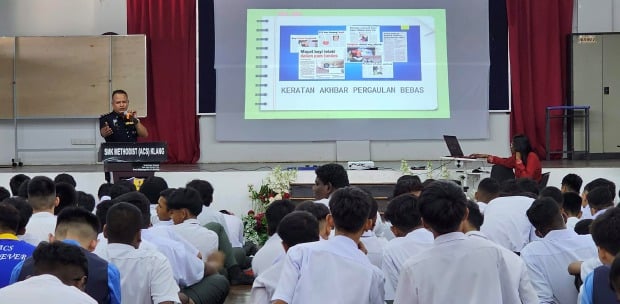MY son prayed hard for schools to reopen when he heard that the Ministry of Education Ministry was going to make some announcements recently. However, he was left disappointed when he discovered that only schools in states, which were in Phase 4 would be allowed to open. And he's not alone in his disappointment. There are many other schoolgoing children and their parents who feel the same.
The coronavirus pandemic has brought with it feelings of anxiety, stress and uncertainty. And these are feelings, which are strongly felt by children of all ages. Although children deal with such emotions in different ways, if your child has been faced with school closures, cancelled events or separation from friends, they're going to need to feel loved and supported more than ever.
The United Nations Children's Fund (Unicef) consulted an expert adolescent psychologist, bestselling author, columnist and mother of two, Dr Lisa Damour, recently to ask about how to advise parents on what to do during these uncertain times.
Her number one advice? Allow the children to be sad. "In the scope of an adolescent's life, these are major losses. This is bigger for (the children) than it is for us because we're measuring it against our lifetime and experience. Support, expect and normalise that they're very sad and frustrated about the losses they're mourning." When in doubt, empathy and support are the way to go.
She added: "Find out what your child is hearing or what they think is true. It's not enough to just tell your child accurate facts, because if they've picked up something that's inaccurate, if you don't find out what they're thinking and directly address the misunderstanding, they may combine the new information you give them with the old information they have. Find out what your child already knows and start from there in terms of getting them on the right track."
TEENS AND SCREENS
When it comes to processing difficult emotions, Dr Damour advised parents to "take your cues from your child, and really think a lot about balancing talking about feelings with finding distractions, and allow distractions when kids need relief from feeling very upset."
Unicef suggests for parents to have a family game night every few days or cook meals together. Dr Damour uses dinner time to connect with her daughters. "We decided that we'd have a dinner team every night. We mix it up in pairs, so we rotate who's in charge of making dinner for the family."
One of the biggest worries among parents during the lockdown is the excessive use of gadgets by their children and teens. The good news is, it's not that bad if we do it right, according to Dr Damour.
With teens and their screens, allow for some leeway, but not a free-for-all. She advises parents to be up front with their teenagers. Say that you understand they have more time on their hands, but that it's not going to be a good idea to have unfettered access to screens or social media. "Ask your teen, 'How should we handle this? Come up with a structure and show me the structure that you're thinking about, and then I'll let you know what I think.'"
Children rely on their parents to provide a sense of safety and security. Dr Damour suggests that parents do what they can to manage their anxiety in their own time and to not overshare their fears with their children. Instead, be the driver and ride this pandemic bump safely and responsibly together.
Zaid Mohamad coaches and trains parents to experience happier homes and more productive workplaces. Reach him at [email protected].





